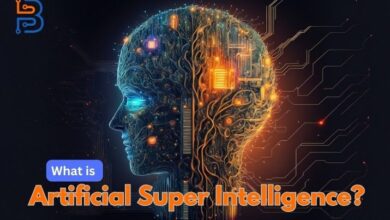The Role of Artificial Intelligence in Future Security Systems

Al is needed to predict the future of security systems and the new use for security systems about efficiency, effectiveness, and adaptability. The pursuit of future enhancement and development of Artificial Intelligence is set to revolutionize the approach utilized to safeguard homes, places of business and apparently even complete cities.
Security systems should be able to analyze an enormous amount of data; identify threats, respond to them adequately; and be capable of learning to address evolving security issues since artificial intelligence systems can do this.
They can partner with other smart devices as well as technologies to form an integrated and coherent security system that can afford better security to people and companies.
This article explores the profound impact of AI on future security systems.
The Role of Artificial Intelligence in Future Security Systems
Here, we explain some points that cater to the role of artificial intelligence in future security systems.
AI and Video Surveillance
No doubt, video surveillance solutions are one of the most essential components of security systems for years. Traditional methods rely on personnel to view and analyze several camera feeds. This approach is expensive but prone to human error in implementation.
Currently, video surveillance is transforming for the better through the use of Artificial intelligence for subsequent analysis of video streams. The use of AI algorithms can help in identifying acts and objects that are out of the ordinary, and thus constant vigilance and timely intervention is easily activated.
In the blog “The Future of AI in Security and Video Surveillance” Axxonsoft reveals how the application of Artificial Intelligence in security and video surveillance work by automatically performing such functionalities as tracking, recognition, and differentiation.
Predictive Analytics
AI’s capability to process vast amounts of data makes it a powerful tool for predictive analytics. Security systems can now anticipate threats before they occur. AI can analyze historical data through machine learning to predict potential vulnerabilities.
This includes proactive measures being taken to prevent breaches instead of reacting to incidents after they have already happened.
Cybersecurity
Artificial intelligence is not just for physical security. It is also essential to protect digital systems. AI-driven cybersecurity systems can monitor networks for unusual activities. Further, they detect vulnerabilities and predict and prevent cyberattacks.
The future of AI in security, as discussed in “The Role of Artificial Intelligence in Future Technology” on Medium, discusses how AI’s role in cybersecurity extends to real-time threat detection, behavioral analysis, and adaptive defense mechanisms.
Smart Access Control
AI is changing intrusion detection in security systems. Traditional intrusion detection systems use established criteria, rendering them prone to false alarms and unexpected threats. However AI-driven intrusion detection systems utilize machine learning algorithms to constantly improve their ability to detect unwanted entries.
They can detect subtle user behavior and network traffic irregularities, improving intrusion detection and reducing false alarms. AI constantly learns and evolves to detect new threats, improving security precision and dependability.
Automating Security Responses
AI will be able to recognize security risks and take appropriate action on its own. For example, automated drones can be used in real-time to detect a threat or security breach. Automatic response systems can minimize human intervention and provide immediate reaction times, enhancing the overall effectiveness of security measures. AI can proactively identify upcoming security vulnerabilities after analyzing patterns and data, enabling proactive measures and strengthening the security infrastructure.
Human-Machine Collaboration
While AI is a powerful tool in security, it is not a replacement for human judgment and intuition. The synergy between AI and human operators is critical to the future of security systems. Humans provide context, ethical decision-making, and creative problem-solving, while AI enhances speed and accuracy.
This collaboration allows security teams to effectively prioritize and respond to new and possible threats, ensuring a thorough procedure for security. Organizations may keep one step ahead of cybercriminals and minimize the impact of security breaches if they combine the strengths of AI and humans.
AI in Intrusion Detection
AI is changing intrusion detection in security systems. Traditional intrusion detection systems use established criteria, rendering them prone to false alarms and unexpected threats. But AI-driven intrusion detection systems utilize machine learning algorithms to constantly improve their ability to detect unwanted entry.
They can detect subtle user behavior and network traffic irregularities, improving intrusion detection and reducing false alarms. AI constantly learns and evolves to detect new threats, improving security precision and dependability.
Ethical Considerations
As AI becomes more developed in security systems, ethical considerations emerge. It is time to address issues about privacy, monitoring, and possible abuse. AI helps society and the government maintain confidentiality and security.
Guidelines and rules are needed to ensure AI is used properly in security systems. Fixing AI algorithm bias, decision-making openness, and AI misuse accountability are all part of this. Partners must discuss and collaborate to build privacy principles and cyber threat prevention mechanisms.
AI in Autonomous Vehicles and Security
AI is essential to solving the unique security issues created due to the growing number of self-driven cars. With the application of AI, self-driven car security may be protected against cyberattacks, allowing for real-time threat identification and reduction.
With its enhanced senses and decision-making powers, it can also improve the safety of self-driving cars. You can examine how AI helps autonomous transportation systems remain secure while protecting users and passengers from possible threats in this area.
AI-Powered Emergency Response Systems
AI is revolutionizing emergency response systems, increasing their effectiveness and efficiency. Artificial intelligence can analyze data from multiple sources, including sensors, social media, and security cameras, enabling prompt evaluation of event severity and resource allocation.
AI can predict natural disasters, which helps authorities plan for emergencies. Talk about how artificial intelligence (AI) transforms emergency services, speeds up response times, and enhances their capacity to safeguard people and property.
Conclusion
Artificial intelligence will be revolutionary in the security systems of the future. Artificial intelligence improves security measures in all areas, including video surveillance, cybersecurity, predictive analytics, and access control. Even though it has many advantages, ethical issues must be handled cautiously. The secret to a safer and more secure future where technology enables us to safeguard what matters most is a human-AI partnership.
The idea behind AI-driven security systems, as presented in these talks, provides a safer future in which we may reduce risks, respond more quickly to attacks, and protect the security of both our digital and physical domains. Artificial intelligence’s strength will determine future safety as technology develops.






